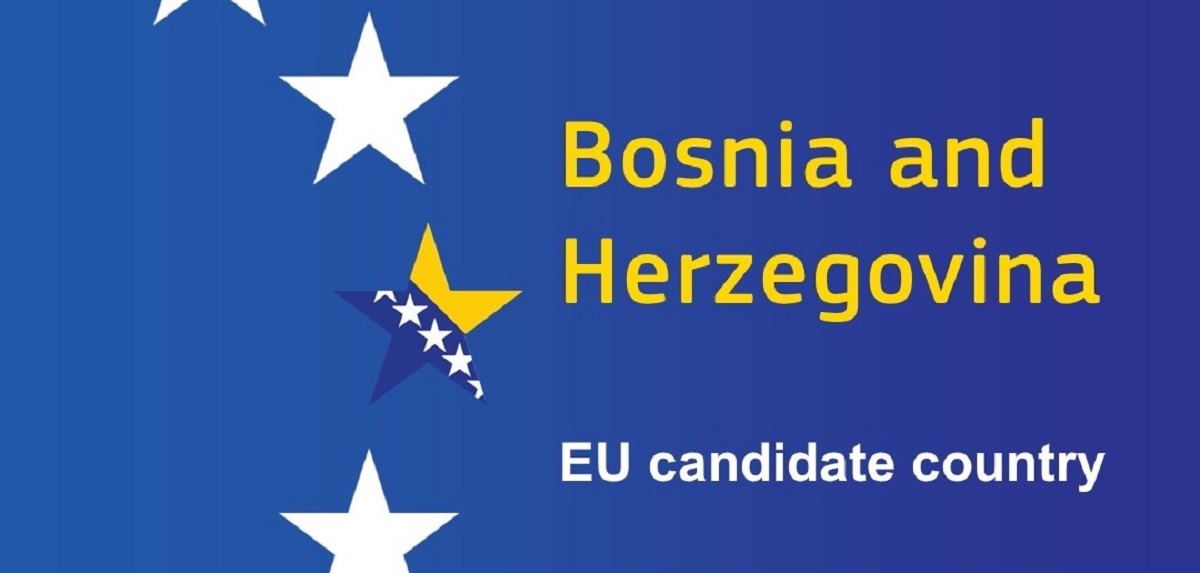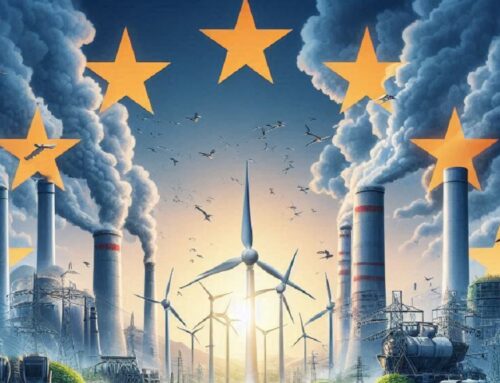“The future of the Western Balkans lies within the European Union”[1]
In 2003, Bosnia and Herzegovina had been recognised as a ‘potential candidate’ for EU membership at the Thessaloniki European Council summit [2]. Fast forward to February 2016 and Bosnia and Herzegovina applied for EU membership, taking upon fourteen key priorities that had been identified by the European Commission in order for the country to comply with the EU membership criteria (especially the Copenhagen political criteria requiring the stability of institutions and the rule of law) and therefore achieve facilitation of accession negotiations [3]. And it was only last month, in December 2022, that the European Council approved of the Western Balkan country’s application, thereby granting the status of EU candidate country to Bosnia and Herzegovina. Application processes typically take considerable time since it fully depends on a country’s satisfactory track record in implementing its obligations under a Stabilisation and Association Agreement (SAA).
Today, there are seven more countries with the candidate status for EU membership: Albania, Moldova, North Macedonia, Montenegro, Serbia, Turkey and Ukraine. After Bosnia and Herzegovina has been granted the candidate status, the only Balkan country without such a status remains partially recognised Kosovo. In fact, the EU enlargement process has been put on pause for many years due to rising enlargement fatigue in the member states. The last country that gained membership in the European Union was Croatia in 2013 [4]. However, Russia’s invasion of Ukraine has provided an impetus for the EU to reconsider its enlargement and neighbourhood policy with Eastern European countries. Candidate country status does not provide an automatic right to join the EU. On average, it has taken about nine years for countries to join the group of six original founding members, depending on how much a country needs to reform its own laws in order to meet the EU’s standards. The Commission evaluates the application in accordance with the accession criteria (Copenhagen criteria), which is based on political, economic and EU acquis benchmarks and includes such provisions as stable democratic institutions, the rule of law, respect for human rights, a functioning market economy, and the ability to assume and effectively carry out the obligations of membership [5]. Thus, joining the EU is a complicated process that can take years, and there is no guarantee that the given country will ultimately be accepted.
Despite the fact that some people perceive granting EU candidate status as just a symbolic gesture, it would be a mistake to diminish its significance, especially in economic terms: that financial and institutional assistance that has come in the form of initiatives such as the Instrument for Pre-Accession Assistance (IPA) has allowed for much change in Bosnia. In the period 2014-2020, €552.1 million were allocated to Bosnia under the IPA II in order to assist the country to align its standards and policies with the ones of the EU [6]. From the geopolitical point of view, it is at this crucial and defining moment that the EU should continue to deepen its cooperation with the Balkans in order to avoid closer alignment of the region with Russia and a regional shift towards further authoritarian tendencies in which allegiance to Europe within the area stretching from Hungary to Turkey would be fragile at best. Taking an even more pessimistic view, European neglect of countries like Bosnia and Herzegovina could allow for the spreading and emergence of additional conflicts, growing influence of organised crime, and increased weaponisation of migration.
References:
1. European Union External Action. The future of the Western Balkans lies within the European Union. https://www.eeas.europa.eu/eeas/future-westernbalkans-lies-within-european-union_en
2. European Commission. European Neighbourhood Policy and Enlargement
Negotiations (DG NEAR). https://neighbourhood-enlargement.ec.europa.eu/enlargement-policy/bosnia-and-herzegovina_en
3. European Commission (2019). Commission Opinion on Bosnia and Herzegovina’s application for membership of the European Union. https://neighbourhood-enlargement.ec.europa.eu/system/files/2019-05/20190529-bosnia-and-herzegovina-opinion.pdf
4. European Commission. European Neighbourhood Policy and Enlargement Negotiations (DG NEAR) – Croatia. https://neighbourhoodenlargement.ec.europa.eu/croatia_en
5. EUR-Lex. Accession criteria (Copenhagen criteria). https://eur-lex.europa.eu/EN/legal-content/glossary/accession-criteria-copenhagen-criteria.html
6. European Commission. European Neighbourhood Policy and Enlargement Negotiations (DG NEAR). https://neighbourhood-enlargement.ec.europa.eu/enlargement-policy/overview-instrument-pre-accession-assistance/bosniaand-herzegovina-financial-assistance-under-ipa_en
Picture: https://twitter.com/eu_commission/status/1603477338032857089





